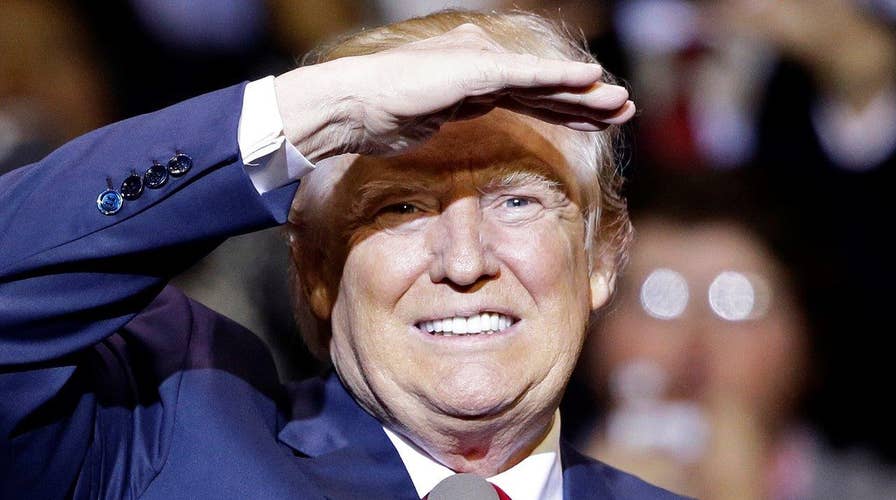In the weeks since Donald Trump stunned the world and won the 2016 presidential election, many people have weighed in with analysis and offered their explanation of the Trump miracle from political, economic and business angles. However, there was one aspect that led to Trump’s victory that almost no one has talked about – his mastery of rejection.
I am not a Trump supporter, to say the least. And I don’t agree with most of his policies and rhetoric. That being said, as an entrepreneur and researcher on the subject of fear and rejection, I see all people through the lens of their relationship with rejection.
As a result, I found Trump's candidacy fascinating. In my newly published TED talk on rejection, I discussed this phenomenon: that the people who changed the world, against overwhelming odds, were not the people who avoided rejection, but those who embraced it and used it as their power.
Unfortunately, the power of rejection is an amoral power. It was used by my personal heroes such as Mahatma Gandhi and Dr. Martin Luther King Jr., but also by ruthless dictators such as Adolf Hitler and Joseph Stalin.
The people who changed the world, against overwhelming odds, were not the people who avoided rejection, but those who embraced it and used it as their power.
In the case of Donald Trump, it’s too early to predict how his presidency will unfold, but one thing was clear -- Trump understood and used the power of rejection better than all of his opponents. Here are three major reasons why.
1. Trump actively sought rejection to build his tribe and jumpstart his campaign. Most politicians run away from rejection. During the primaries, Trump’s traditional and well-funded opponents such as Jeb Bush and Marco Rubio read roundly crafted speeches, used carefully assembled focus groups, and avoided controversies and rejections like plagues. As a result, we ended up with polished yet robotic candidates trying to appease to everyone.
Donald Trump, on the other hand, did exactly the opposite. He went after the rejections that came with controversy. From the moment he declared his candidacy, he talked about Mexican immigrants as criminals and rapists, remarks roundly rejected by people from all sides.
Trump is a successful businessman, living in a progressive city, and it wouldn't be far-fetched to assume that he could foresee public reactions. But he also understood that strong rejection meant deep-rooted emotion from two sides.
If Trump were to be rejected by one group, he would find another group accepting him with equal fervor. By using rejection, he quickly found his own tribe to build upon. As an outsider and longshot candidate, he needed that foundation fast.
Second, throughout his campaign, Trump kept using rejections as fuels for both his tribe and himself.
A traditional candidate such as Mitt Romney or Hilary Clinton, when faced with strong rejection and criticism, would treat them like problems and attempt to solve them. They would apologize for their gaffe such as “47 percent” or “deplorables” and move on. Trump, on the other hand, treated rejections as wood to his fire.
On an organizational level, for every rejection that came with his controversial remarks, he fed them directly to this tribe and blamed it on the "crooked media." By building up this enemy and its "attacks," he fueled the growth of his supporters, which included many if not most people already frustrated with and distrustful of the media.
On a personal level, Trump thrived on rejection. In fact, one could argue that President Obama's public humiliation of Trump during 2011's White House Correspondents' Association dinner gave birth to Trump’s decision to run four years later.
Throughout society, we can find extraordinarily successful people such as Michael Jordan and Steve Jobs using rejection to fuel their own motivation. Trump was no exception.
Lastly, Trump never gave up no matter how overwhelming the rejection was.
In just the past two presidential elections, we can find many candidates giving up after public rejection or even indication of rejection. Tim Pawlenty folded his campaign after an unfavorable Iowa straw poll result. Rick Perry said goodbye after “oops.” Scott Walker waved sayonara after two mediocre debates.
Trump, on the other hand, never let rejection define his fate. He continued to battle through his worst rejections and failures, whether it was losing the Iowa Caucus, being down double digits in the national polls to Clinton, getting crushed (according to some analysts) in three consecutive presidential debates, or being blindsided by a devastating video scandal.
Of course, it’s easy to look back now and see that none of these rejections were fatal setbacks. But, at the time they occurred, many people, including pundits, the public and even people in his own party believed it was the end for Trump.
Facing these odds, many traditional candidates would have quit. Trump, to his credit, never quit or was even rumored to have considered quitting.
I supported neither Trump nor Hillary Clinton in this election, and I was apprehensive of Trump’s unpredictability and rhetoric. That said, the result of the 2016 election wasn’t a shock to me.
The day before the election on November 7, when all the polls showed Clinton as an overwhelming favorite, I went to both Trump's and Clinton’s websites looking at their schedules on election night.
On Clinton’s site, it said “Election Night Related Events”. And on Trump’s site, it said “Victory Rally and Party.”
Somehow, I had a sense then which campaign was more cautious and which one was more fearless.
In battles, whether with sports or presidential elections, if you have to bet on one side, always bet on the fearless side.

